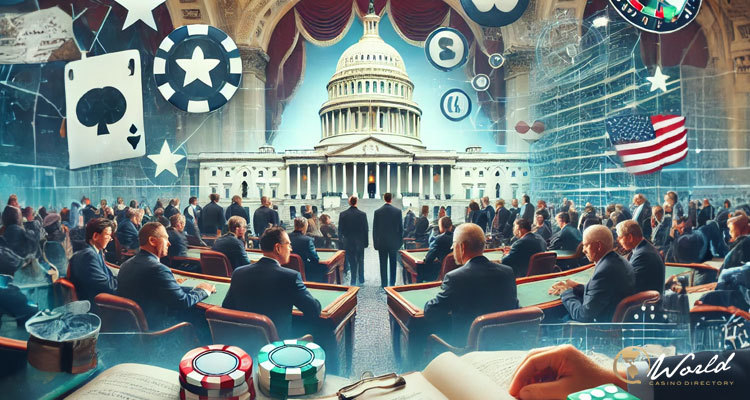In response to the growing prevalence of online sports betting and the disparities in state regulations, US Representative Paul Tonko, alongside US Senator Richard Blumenthal, have announced plans to introduce new federal legislation that seeks to harmonize the regulatory landscape across the United States. The announcement was made on Tuesday (10 September), and the lawmakers have scheduled a press conference for Thursday (12 September) to delve into the details of the proposed bill.
Unveiling a unified approach to sports betting:
The press conference, which is set to commence at 1pm ET, promises to provide valuable insights into the forthcoming legislation. In addition to the live attendance, the event will be streamed on Representative Tonko’s X page, ensuring that stakeholders and the general public can follow the proceedings from anywhere.
This is not the first time Representative Tonko has ventured into the arena of sports betting legislation. He has previously introduced two legislative measures aimed at establishing a federal framework to oversee sports betting—a domain traditionally governed by state law. These initiatives have been driven by the significant changes in the legal landscape following the US Supreme Court’s decision in May 2018, which overturned the Professional and Amateur Sports Protection Act (PASPA). This federal act had previously prohibited sports betting, leaving states unable to legislate on the matter.
The repeal of PASPA marked a pivotal change, quickly leading to the establishment of in-person sports betting facilities in four states within a few months. Notably, New Jersey took the lead in launching digital betting platforms as early as 6 August 2018, following a successful legal challenge led by then-Governors Chris Christie and Phil Murphy.
Key features of the proposed legislation:
The upcoming legislation, hinted to be akin to Tonko’s earlier proposed Supporting Affordability and Fairness with Every Bet (SAFE) Act, is expected to address several critical areas of concern in the online sports betting industry. The presence of representatives from the Public Health Advocacy Institute at Northeastern University School of Law at the press conference underscores the bill’s focus on public health and consumer protection.
Tonko’s SAFE Act, preliminarily shared in the spring, outlined comprehensive measures to ensure responsible gambling. It proposed strict advertising guidelines that would restrict certain vocabulary in ads and limit the times during which sports betting ads could be aired on television. The bill also sought to implement affordability checks to prevent financial overreach by consumers and prohibit the use of artificial intelligence in tracking betting activities.
According to iGaming Business, the legislation also introduced specific operational constraints, such as limiting users to five deposits per day, banning certain types of bets, and creating a nationwide self-exclusion list to help gamblers voluntarily exclude themselves from betting activities.
An essential yet less highlighted aspect of the SAFE Act is its overarching approach to sports betting. The bill proposes to establish a general prohibition on sports betting, necessitating states to obtain explicit permission from the federal government to legalize and regulate this form of gambling within their jurisdictions.



